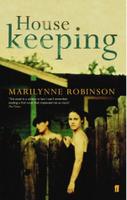SAUL BELLOW (1915-2005)
“Fiction is the higher autobiography”SAUL BELLOW died on April 5, 2005, at the age of 89. I really can't think of a better way to pay tribute to
Saul Bellow other than to list his oeuvre of books chronologically. Those in bold are some of his important contributions to post-World War II American, Jewish and World literature.
Martin Amis believes that the search for the Great American Novel ends with
The Adventures of Augie March (1953).
BELLOW Saul [1915-2005] Novelist; awarded the Nobel Prize for Literature in 1976. Born Solomon Bellows in Lachine, Quebec, Canada.
NOVELS Ravelstein (2000); More Die of Heartbreak (1987);
The Dean's December (1982);
Mr Sammler's Planet (1970: 1971 National Book Award for Fiction);
Humboldt's Gift (1975: 1976 Pulitzer Prize for Fiction);
Herzog (1964: 1965 National Book Award for Fiction and the 1965 International Literary Prize);
Henderson the Rain King (1959);
Seize the Day (1956);
The Adventures of Augie March (1953: 1954 National Book Award for Fiction); The Victim (1947); Dangling Man (1944)
NOVELLAS The Actual (1997); Something to Remember Me By (1991); A Theft (1989); The Bellarosa Connection (1989)
STORIES Collected Stories (ed. Janis Bellow) (2001); Him With His Foot in His Mouth and Other Stories (1984); Mosby's Memoirs and Other Stories (1968)
PLAY The Last Analysis (1965)
ESSAYS It All Adds Up: From the Dim Past to the Uncertain Future: A Nonfiction Collection (1994); The Arts & the Public: Essays by Saul Bellow and Others (ed. James E. Miller, Jr. and Paul D. Herring) (1967)
MEMOIR To Jerusalem and Back: A Personal Account (1976)
SLICES OF BELLOWI HARDLY KNEW [Simon] there, among mirrors, rugs, racks of clothes, eight stories above the Loop. ... Below, I was in a bargain department under the sidewalk, seeing and hearing the shoppers pass over the green circles of glass set in concrete, skirts of heavy coats flying as shadows through these lenses, but the weight of bodies actual enough, the glass creaking and soles going every which way. This vault was for the poorer class of customers or for solitary-hornet shoppers, girls with outfits to match, hats and accessories; women with three or four little daughters to buy shoes for on the same day. The goods were heaped up on tables by sizes, and then there were cardboard-cell walls of boxes and fitting stools in a circle under the honeycomb of the sidewalk.
Saul Bellow, in
The Adventures of Augie March (1953)
MY MIND was in one of its Chicago states. How should I describe this phenomenon? In a Chicago state I infinitely lack something, my heart swells, I feel a tearing eagerness. The sentient part of the soul wants to express itself. There are some of the symptoms of an overdose of caffeine. At the same time I have a sense of being the instrument of external powers. They are using me either as an example of human error or as the mere shadow of desirable things to come. I drove. The huge pale lake washed forward. To the east was a white Siberian sky and McCormick Place, like an aircraft carrier, moored at the shore.
Saul Bellow, in
Humboldt's Gift (1975)
PAPA had the night job, and slept days. You had to tiptoe through the house. If you woke him he was furious. His overalls, reeking of linseed oil, were hung behind the bathroom door. At three in the afternoon, half dressed, he came out for his tea, silent, his face filled with stern anger. But by and by he became an entrepreneur again, doing business out of his hat on Cherry Street, opposite the Negro whorehouse, among the freight trains. He had a roll-top desk. He shaved his mustache. And then Mama started to die. ... That was a frightful January, streets coated with steely ice. The moon lay on the glazed snow of the back yards where clumsy lumber porches threw their shadows.
Saul Bellow, in
Herzog (1964)
HE drove to the South Side on a winter day streaky with snow. You could see the soot mingling with the drizzle. Corde hadn't come to this neighborhood in 30 years. It was then already decaying, now it was fully rotted. Only a few old brick bungalows remained, and a factory here and there. The expressway had cut across the east-west streets. The one remaining landmark was the abandoned Englewood Station -- huge blocks of sandstone set deep, deep in the street, a kind of mortuary isolation, no travelers now, no passenger trains. A dirty snow brocade over the empty lots, and black men keeping warm at oil-drum bonfires. All this -- low sky, wind, weed skeletons, ruin -- went to Corde's nerves, his "Chicago wiring system," with peculiar effect. ... He parked and got out of the car feeling the lack of almost everything you needed, humanly. Christ, the human curve had sunk down to base level, had gone beneath it. If there was another world, this was the time for it to show itself. The visible one didn't bear looking at.
Saul Bellow, in
The Dean's December (1982)






